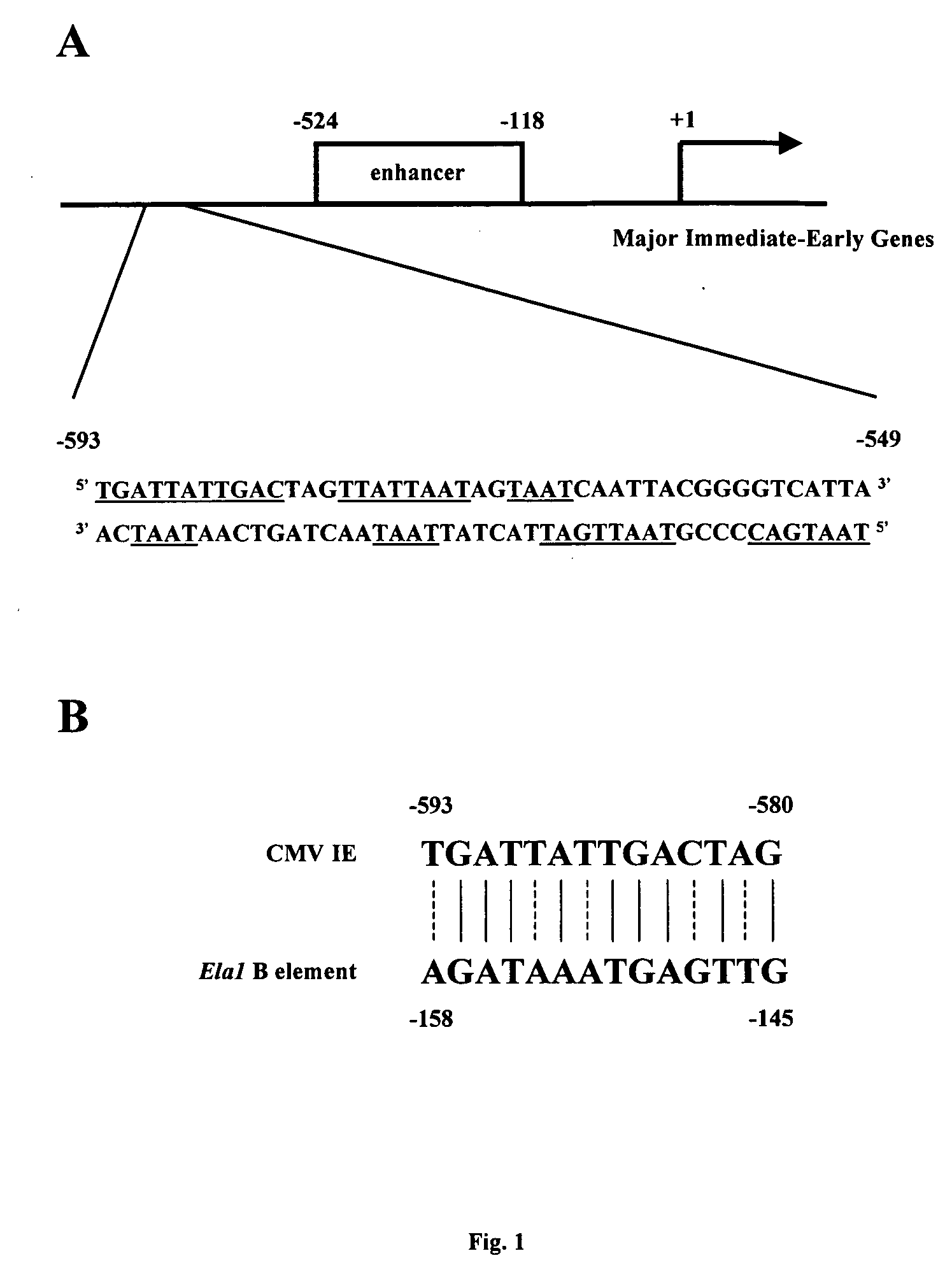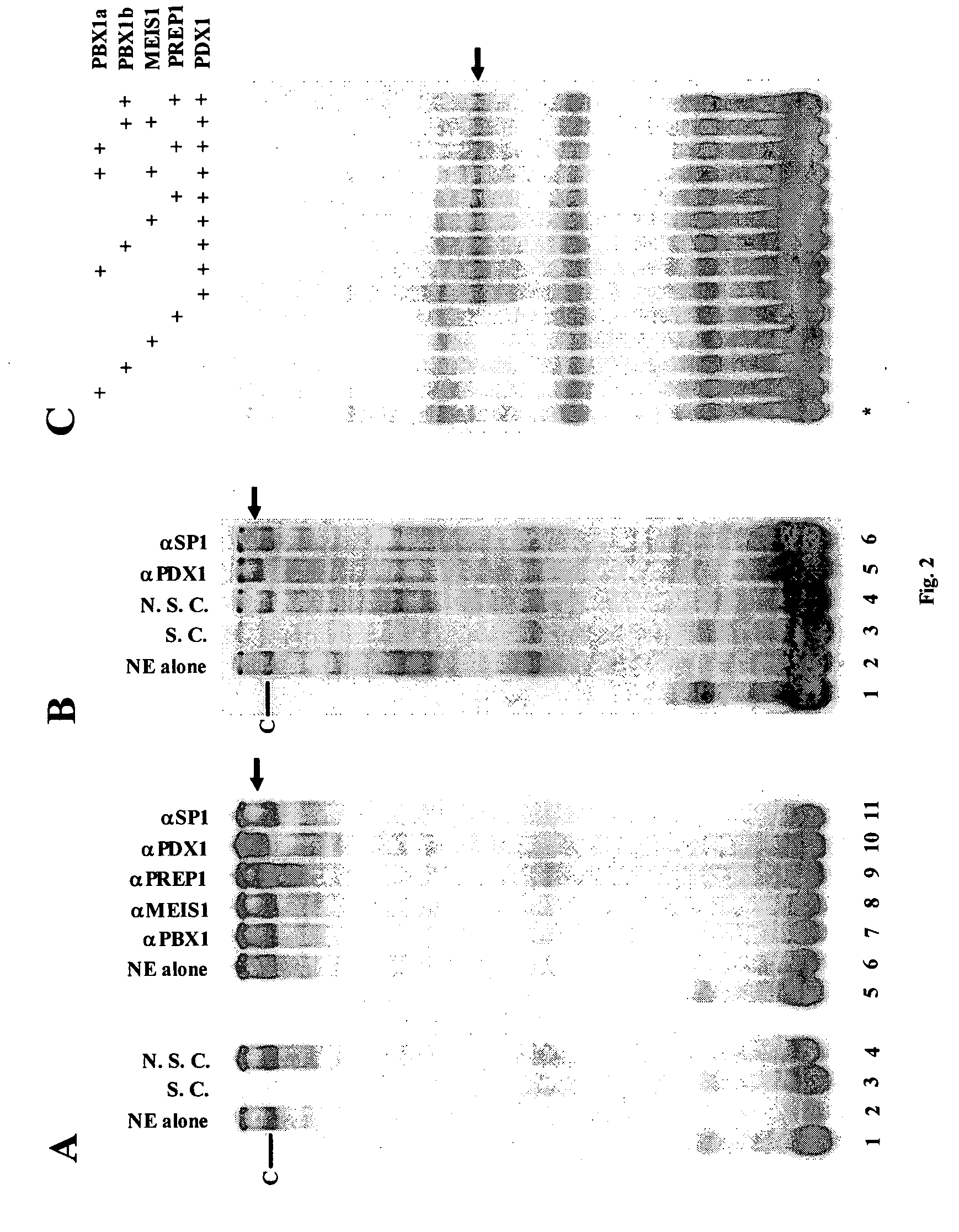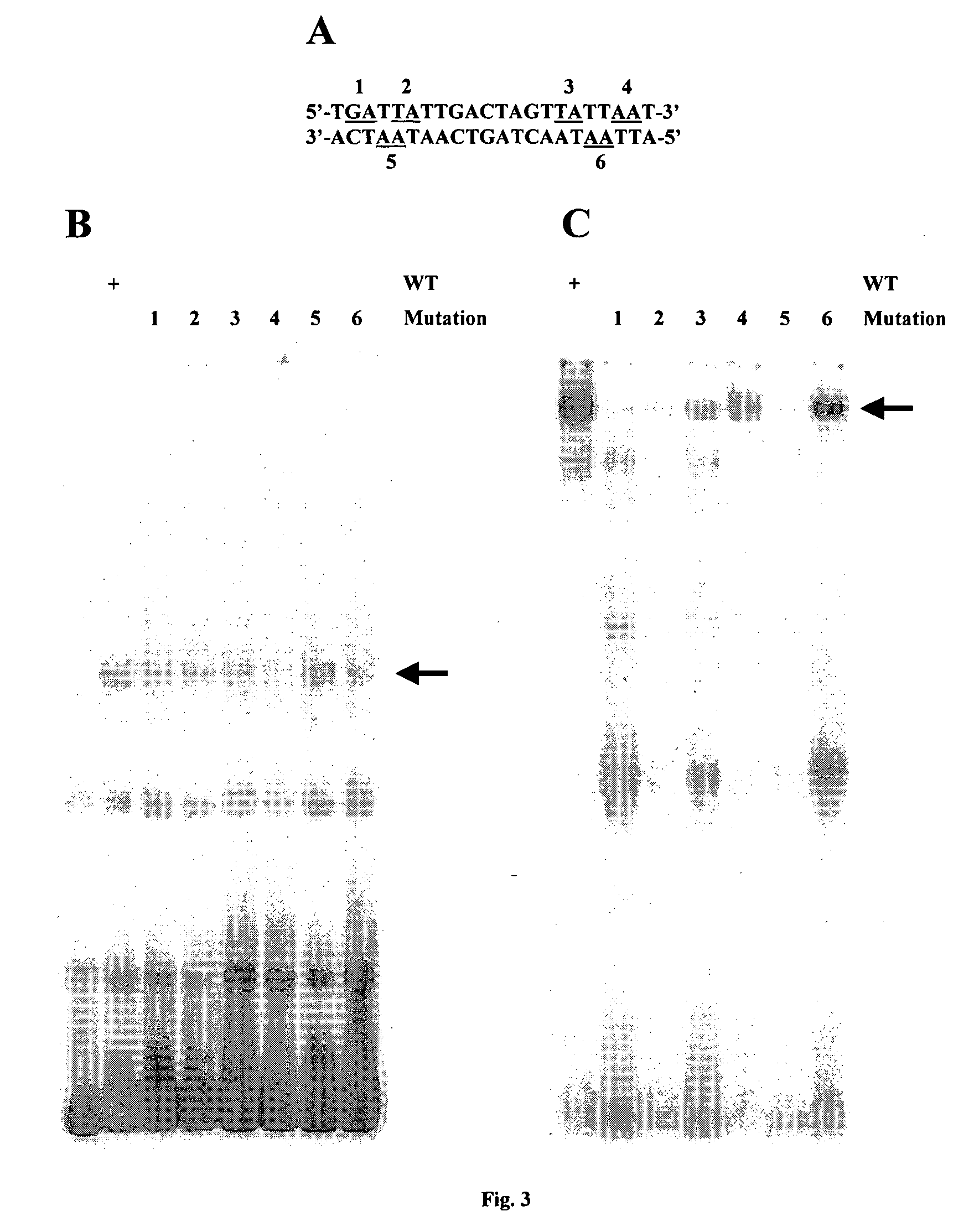Methods and compositions for inhibiting herpesviral replication
a technology of herpesvirus and composition, which is applied in the direction of material testing goods, biochemistry apparatus and processes, instruments, etc., can solve the problems that the current available drugs for treating infections of herpesviruses are not very satisfactory
- Summary
- Abstract
- Description
- Claims
- Application Information
AI Technical Summary
Benefits of technology
Problems solved by technology
Method used
Image
Examples
example 1
General Methods
[0081] This example describes materials and methods used to show that PDX1 represses CMV-dependent transcription.
[0082] Plasmids and plasmid construction. The Pdx1 (accession number: X99894) complementary DNA (cDNA) was reverse transcribed with gene specific primers using the Qiagen OneStep RT-PCR (reverse transcription-PCR) kit as prescribed by the manufacturer. In brief, the cDNA product was synthesized and amplified from 1 μg purified human pancreatic polyA mRNA (Clontech) using two primers: 5′-AATAGGATCCGCCGCAGCCATGAACGGCGA (SEQ ID NO: 13 and 5′-CTCCTCTAGACTCTCATCGTGGTTCCTGCG (SEQ ID NO: 14). The resultant product was inserted into the multiple cloning site of pUB6NV5-His B (Invitrogen) using the appended BamHI and XbaI (underlined) restriction sites to generate pUB-PDX1, in which the expression of Pdx1 was driven by the human ubiquitin C promoter. A pUB-PREP1 plasmid was generated by cloning the coding sequences of Prep1 into the pUB6 vector using CMV-PREP1 as ...
example 2
PDX1 and Transcriptional Regulation of the Human CMV IE Gene
[0085] This example describes the analysis of the promoter-enhancer regions of human CMV IE gene for consensus homeoprotein binding elements. A 45-nucleotide fragment located at position −593 to −549 upstream of the transcription start site of the CMV IE gene was found to contain numerous putative homeoprotein binding sites (FIG. 1A). Including the reverse complementary sequences, 12 potential tetramer binding sites for homeobox proteins were identified, including two PBX1 (i.e. TGAT), two PREP1 or MEIS1 (i.e. TGAC), six PDX1 (i.e. TAAT) and eight HOX binding sites (i.e. TAAT or TTAT) (FIG. 1A). A previous study indicated that a PDX binding site, AGATAAATGAG, located in the B element of the transcriptional enhancer of the pancreatic elastase I gene (Ela1), shares significant similarity with the first 11-bp of the CMV 45 nucleotide-fragment (FIG. 1B). It has been shown that PDX1 associates with the B element by forming a tr...
example 3
Identification of PDX1 Binding Sites
[0090] This example describes identification of the exact PDX1 binding site within the 45-bp CMV region. There are six putative PDX1 binding tetramers, TAAT, present in the region (FIG. 1A). Of note, there are also two TTAT and two TGAT tetramers that contain a mismatch at a single position and could therefore be homeobox binding sites. To determine which tetramer conferred association with PDX1, point mutations at each of the ten potential PDX1 sites (i.e., TAAT, TTAT, and TGAT) were generated, by changing the central two nucleotides to two cytosines. Six possible PDX1 sites are present in CMV1 (tetramer 1 to 6; FIG. 3A) and four in CMV2 (tetramer 7 to 10; FIG. 4A). EMSAs were thus performed using in vitro synthesized PDX1 protein and a wild-type or site-mutated CMV1 DNA probe. As shown in FIG. 3B, although mild binding-loss effects were observed for mutations at each site, mutations at tetramers 4 and 6 (both are TAAT) and to a lesser extent, t...
PUM
| Property | Measurement | Unit |
|---|---|---|
| electrophoretic mobility shift assay | aaaaa | aaaaa |
| length | aaaaa | aaaaa |
| neighborhood word score threshold | aaaaa | aaaaa |
Abstract
Description
Claims
Application Information
 Login to View More
Login to View More - R&D
- Intellectual Property
- Life Sciences
- Materials
- Tech Scout
- Unparalleled Data Quality
- Higher Quality Content
- 60% Fewer Hallucinations
Browse by: Latest US Patents, China's latest patents, Technical Efficacy Thesaurus, Application Domain, Technology Topic, Popular Technical Reports.
© 2025 PatSnap. All rights reserved.Legal|Privacy policy|Modern Slavery Act Transparency Statement|Sitemap|About US| Contact US: help@patsnap.com



